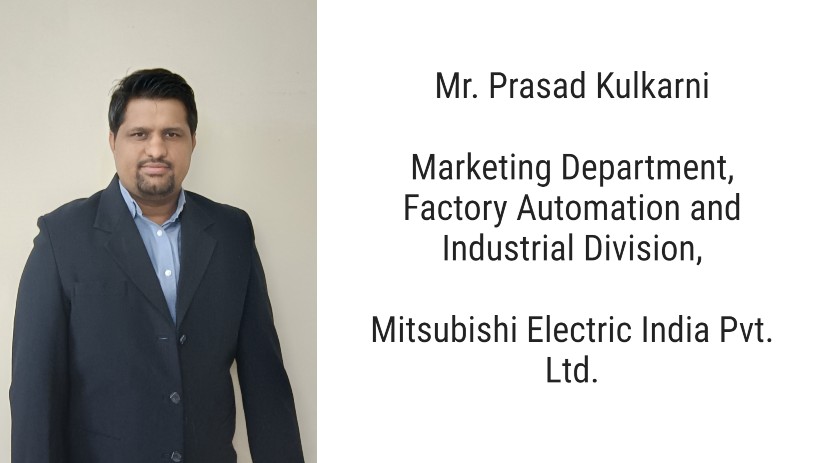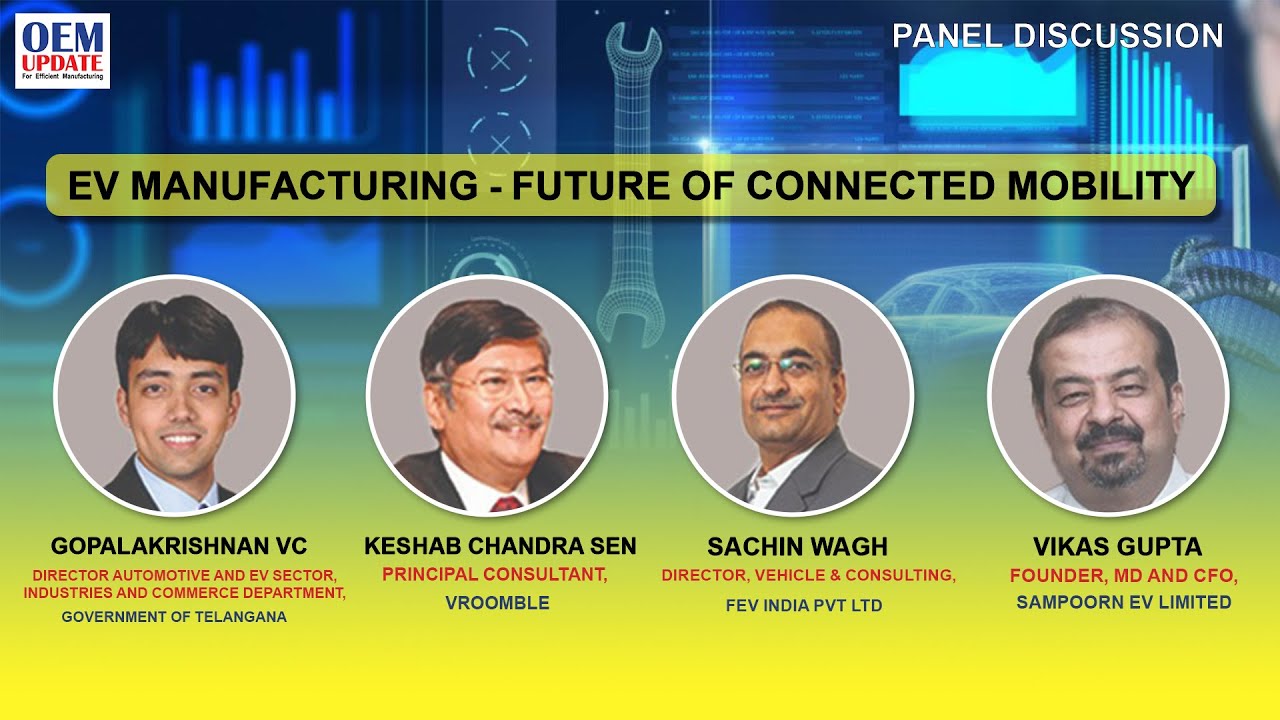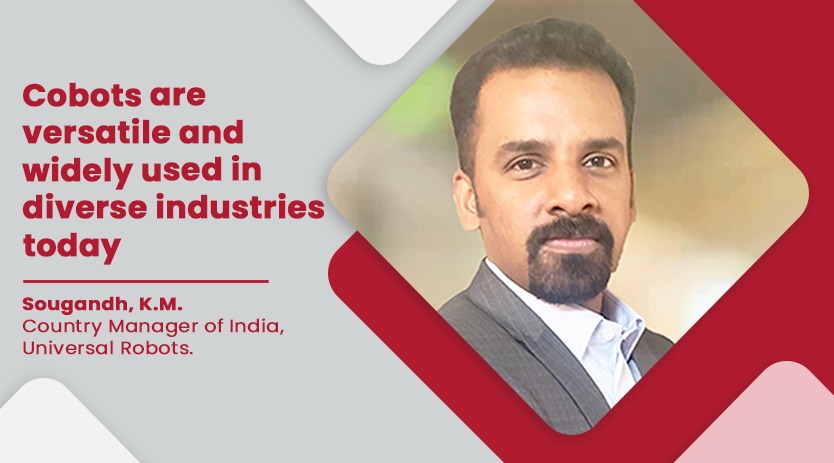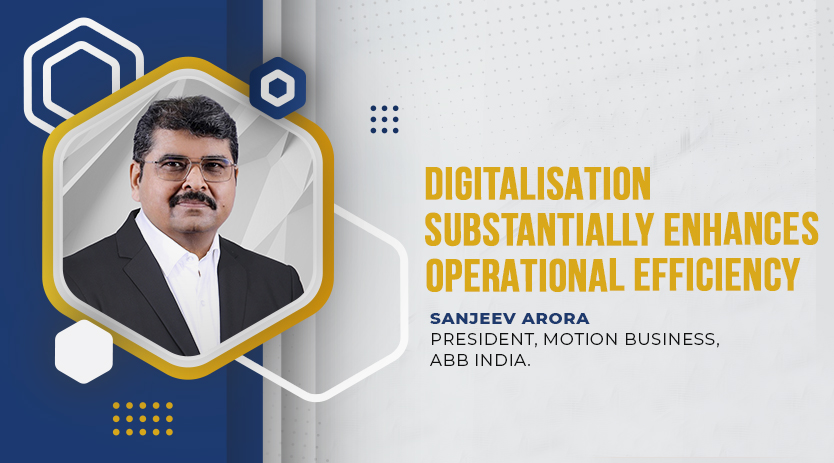Why Industrial Automation is the Need for SMEs Today and How Mitsubishi Electric India Can Help
October 27, 2022 6:37 pm
Mitsubishi Electric India’s extensive product line includes controllers, drives, industrial and collaborative robots, visualisation products such as HMIs and SCADA, LVS, CNCs, and other automation solutions and technologies.
The fourth industrial revolution has arrived, and it has become the talk of the town for good reason. Industry 4.0, which is gaining traction around the world, is defined by digitalization and automation interconnection with products, value chains, and business models. Internet of Things (IoT), artificial intelligence, data volumes, business analytics, computational power, augmented reality, elemental design, advanced robotics, simulation, additive manufacturing, cyber-physical systems, and sensor-based technologies are among the technologies driving it. It helps to create a ‘Smart Factory,’ which is characterized as resource efficient with increased reliability and brings a noticeable improvement in output quality.
Manufacturing industry plays a significant role towards the Indian economy. Government of India launched the ‘Make in India’ program with the goal of putting India on the map as a manufacturing hub. In India, the SMEs industry plays a critical role in helping the country move towards smart manufacturing and is a source of employment and customized service for a large percentage of the population.
Impact on workforce
The manual efforts required for quality control will be reduced as a result of Big-Data-Driven Quality Control and edge computing, but, demand for industrial data scientists will rise. Some of the other impacts are listed below:
- Although, robot-assisted production will reduce the need for manual labor in manufacturing, there will be a demand for job-robot coordinators. This will enhance the productivity of the workforce.
- Smart Supply Network implementation will allow better supply decisions. This will result in increase in the demand for supply chain coordinators, technical designers, data analysts and engineers.
- Predictive Maintenance will allow better equipment maintenance by identifying the needs before it breaks down, this also results in creating jobs in system design, IT, and data science.
- Manufacturers will be able to create complex parts in simple steps, eliminating the need for assembly and inventories of individual parts, due to additive manufacturing of complex parts. However, new jobs in 3-D computer-aided design and 3-D modelling will emerge.
Without a doubt, considering the benefits of Industry 4.0, the demand for highly skilled workers in IT, analytics, and R&D roles will rise.
Role of SMEs
Small and medium-sized businesses (SMEs) play an important role to help the country step towards smart manufacturing. Quality, efficiency, traceability, and collaboration should all be priorities for SMEs. India is a fast-growing market with plenty of opportunities and a few stumbling blocks. The following are some of the issues that Indian manufacturers face:
- Market demand is erratic
- Use of manufacturing and/or sourcing flexibility
- Preparedness of management
- Discipline and cultural shift required
- Standardization of design
- Need to produce a single quantity batch without sacrificing efficiency or quality
- Automation of the entire supply chain is required.
IT, which is considered the backbone of the industry, is one of the major contributors to smart manufacturing. Fortunately, India has a large pool of talent, particularly in the IT sector, which is filled with opportunities. India will be able to forge its own path for smart factories in the future. To strengthen India’s manufacturing sector, SMEs should be encouraged to partner with larger organizations that can provide Indian manufacturers with a variety of customized solutions.
The Indian SME sector should look to market leaders for technological assistance that will allow Indian businesses to expand into new Asian markets. The majority of SMEs in India have strong technical capabilities, but they need to implement and improve design and quality measurement processes. Industry 4.0’s role in the SME sector will assist them in broadening their horizons and exploring markets in Asian countries other than India. Market leaders can assist them with strategy formulation and quality assessment in addition to providing technological assistance.
The Challenges and Opportunities of Industry 4.0
Skill Challenges
Assuming that complete automation is not a realistic goal, one of Industry 4.0’s benefits is that it will boost productivity through a combination of physical and digital assistance systems. This will occur as a result of Industry 4.0’s technological advancements, which will reduce the demand for hazardous and repetitive jobs while increasing the demand for jobs that require problem solving, flexible responses, and customization. Employees may be required to combine job-related know-how with IT skills.
Manufacturing Challenges
After realization of Industry 4.0, some of the key challenges in manufacturing were seen which include potential lack of a clear digital vision, fostering a strong digital culture, data security, level of digitization, a lack of data analytical capabilities, lack of standardization, prevalence of proprietary standards is going to be a key roadblock, and the major risk with recording, storage and analysis of large volumes of customer data is the inappropriate use of the said data.
Benefits of Industry 4.0
With the adoption of Industry 4.0, Small and medium-sized businesses (SMEs) and manufacturing units can reap rewards such as lower costs, optimized customer relationships, additional revenue, increased transparency in production processes, reducing inventories, improving worker health and safety, Maintenance processes standardization, clarification on the status of production system in real-time and becoming more energy-efficient and environmentally sustainable production and systems, effective use of human and material resources, and 100% traceability.
With the Industrial Internet of Things (IIoT) and e-commerce platforms, SMEs will have new opportunities to offer tailor-made services and products using digital platforms. It will also allow them to internationalize and become micro-multinationals, resulting in the generation of new jobs and revenue, fueling innovation and increasing efficiency. Lead firms in global value chains can benefit SMEs by providing new products and services.
How Mitsubishi Electric India can Help
Industry 4.0 is reshaping India’s manufacturing industry. While technologies like robotics, AI, machine learning, cloud computing, and big data analytics are already in use in the manufacturing industry, their integration will change the way we do business. The Industrial Internet of Things (IIoT) is still in its early stages in India, but it is already transforming the manufacturing sector in terms of customer response, transparency, agility, and cost saving.
At Mitsubishi Electric India, it is known as e-F@ctory because it allows the manufacturing industry to adopt digitalization. Integration of IT and FA/OT systems is crucial to digitalisation. For this reason, all of Mitsubishi Electric India’s Factory Automation products, such as PLCs, HMIs, AC Servo Systems, CNC Controllers, Industrial Robots, IPCs, and Low Voltage Switchgear, come with advanced communication technologies. The production processes are more visible with e-F@ctory. With the advent of smart manufacturing and the fact that India is termed as a manufacturing hub, increased competitiveness and the development of an efficient value chain are becoming increasingly important.
Mitsubishi Electric India’s extensive product line includes controllers, drives, industrial and collaborative robots, visualisation products such as HMIs and SCADA, LVS, CNCs, and other automation solutions and technologies. Pharmaceutical, textile, water and wastewater treatment, automotive solutions, food and beverage, and many other industries can benefit from these solutions. All of these industries contribute significantly to the growth of the economy and the fulfilment of societal needs. As a result, e-F@ctory solution is critical in enabling smart manufacturing for these industries by leveraging IoT-based data.
For more information, Visit: https://www.mitsubishielectric.com/
Cookie Consent
We use cookies to personalize your experience. By continuing to visit this website you agree to our Terms & Conditions, Privacy Policy and Cookie Policy.

















 English
English Hindi
Hindi